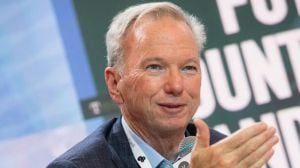Kar seva goof-up may cost Gujarat dear
AHMEDABAD, DECEMBER 8: The Keshubhai Patel Government, by its inept handling of Sharad Joshi's kar seva at the Sardar Sarovar Project site...

AHMEDABAD, DECEMBER 8: The Keshubhai Patel Government, by its inept handling of Sharad Joshi’s kar seva at the Sardar Sarovar Project site, seems to have walked straight into a trap. It has also got egg on its face for using strong-arm tactics against peaceful volunteers, while Joshi threatens another agitation, this time against the proposed Bharat Oman Refinery pipeline, which could prove to be a bigger embarrassment.
Despite its crackdown on Narmada Jan Andolan volunteers, the Government could not prevent the symbolic kar seva of pouring water from the reservoir into the Narmada canal. Its action has also split the pro-SSP groups for the first time. And the Supreme Court, which is hearing a petition on the SSP, hasn’t taken cognisance of the kar seva, contrary to Government claims that the kar seva would amount to contempt of court.
Interestingly, the Government began by tacitly supporting the kar seva, but later changed track. It first said the kar seva wouldadversely affect the court case. Next, it said it was not safe because volunteers were likely to fall into the dam. It now says it had to prevent trouble at the dam site.
It had questioned Sharad Joshi’s `sudden love’ for the Narmada project, saying it was politically motivated as it would help Joshi launch the Nationalist Congress Party in Gujarat. Joshi’s argument was they only wanted to drive home the point that water stored in the reservoir can be used in Gujarat even when the project is incomplete, and also that farmers of others states, who came to participate in the kar seva, stood by their compatriots in Gujarat.
Chunibhai Vaidya of Gujarat Lok Samiti, a pro-SSP body, says thanks to the ego of the Chief Minister and others in the government, “we lost the chance to call Medha Patkar’s bluff that the farmers in the country are not with the SSP.” Hasmukh Patel of Sampurna Punarvasvat Samiti, another pro-SSP body, avers, “It is best known to the Government why it opposed the kar sevaand created a totally avoidable controversy.”
“The Government spread lies that there was a Supreme Court hearing on December 2, and thereby created a feeling that the kar seva was unjustified. In fact, there was no hearing at all,” adds Vaidya. “Earlier, the Government supported the kar seva but, maybe for political reasons, it changed track,” says Patel.
Perhaps the Government feared that the Congress would make political capital out of the issue. While some Congress leaders did participate in the kar seva, the Congress, as a party, desisted. So did the Nationalist Congress Party which, the Government suspected, was pulling the strings.






- 01
- 02
- 03
- 04
- 05

























